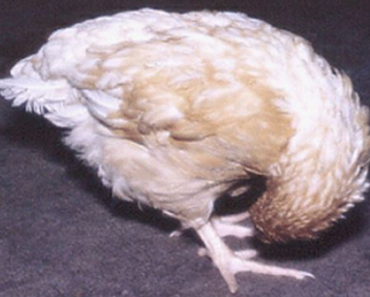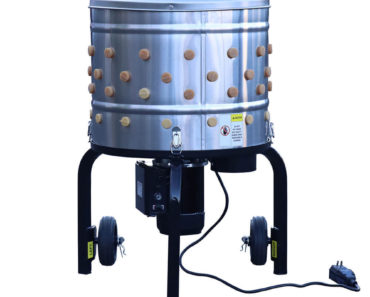Contents

We explore the world of chickens and their nutritional needs. we will dive into the essential vitamins that chickens require for optimal health and well-being. Discover the key vitamins that contribute to strong bones, healthy feathers, and a robust immune system. Join us on this journey to ensure your flock’s vitality and vitality. Stay tuned for expert insights and practical tips to keep your chickens happy and thriving.
Essential Vitamins for Healthy Chickens: Ensuring Optimal Nutrition in Your Flock
Did you know that providing your chickens with the right balance of essential vitamins is crucial for their overall health and well-being? Just like humans, chickens require a variety of vitamins to support their bodily functions and maintain a strong immune system.
One of the most important vitamins for chickens is Vitamin A. It plays a vital role in maintaining healthy vision, promoting growth and development, and supporting the reproductive system. Foods rich in Vitamin A include dark leafy greens, carrots, and sweet potatoes.
Another essential vitamin for chickens is Vitamin D. Chickens need exposure to sunlight to naturally produce this vitamin, but it can also be supplemented through their diet. Vitamin D is crucial for bone development, egg production, and overall immune function.
Vitamin E is another key player in chicken nutrition. It acts as an antioxidant, protecting the chickens’ cells from damage caused by free radicals. Foods such as wheat germ, sunflower seeds, and nuts are good sources of Vitamin E.
Vitamin K is necessary for proper blood clotting in chickens. It helps prevent excessive bleeding and ensures that wounds heal properly. Dark green vegetables, such as kale and spinach, are excellent sources of Vitamin K.
In addition to these vitamins, chickens also require a range of B-complex vitamins, including thiamine (B1), riboflavin (B2), niacin (B3), pyridoxine (B6), and cobalamin (B12). These vitamins are involved in energy metabolism, nervous system function, and red blood cell formation. A balanced diet consisting of grains, legumes, and green leafy vegetables can provide these essential B-complex vitamins to your flock.
Providing your chickens with a nutritionally balanced diet that includes these essential vitamins is crucial for their overall health and productivity. Consult with a veterinarian or poultry nutritionist to ensure that your flock’s nutritional needs are met. Remember, healthy chickens are happy chickens!
Essential Vitamins for Chickens

Vitamins play a crucial role in maintaining the health and well-being of chickens. They are essential for proper growth, development, and overall performance. Here are some important vitamins that you should give to your chickens:
– Vitamin A: This vitamin promotes good vision, healthy skin, and strong immune function in chickens. It is found in leafy greens, carrots, and yellow vegetables.
– Vitamin D: Chickens need vitamin D for calcium absorption and bone strength. Exposure to sunlight helps them synthesize this vitamin naturally, but you can also provide it through fortified feeds or supplements.
– Vitamin E: A powerful antioxidant, vitamin E protects chickens’ cells from damage and supports immune function. Good sources include wheat germ, leafy greens, and nuts.
– Vitamin B complex: This group of vitamins, including B1 (thiamine), B2 (riboflavin), B3 (niacin), B5 (pantothenic acid), B6 (pyridoxine), B7 (biotin), B9 (folate), and B12 (cobalamin), is vital for energy metabolism, proper nerve function, and healthy feathers. Commercial poultry feeds typically contain adequate amounts of these vitamins, but additional supplementation may be required in certain cases.
– Vitamin K: Vitamin K is important for blood clotting and bone health. Green leafy vegetables, such as kale and spinach, are rich sources of this vitamin.
Signs of Vitamin Deficiency in Chickens
Identifying vitamin deficiencies in chickens is crucial to prevent potential health issues. Some common signs to watch out for include:
– Poor growth: Vitamin deficiencies can lead to stunted growth and underdeveloped chickens. If you notice that your chicks are not growing as expected, assess their vitamin intake.
– Feather abnormalities: Dull, discolored feathers or feather loss may indicate a lack of essential vitamins in a chicken’s diet. Proper supplementation can help maintain healthy plumage.
– Weak immune system: Chickens with vitamin deficiencies are more susceptible to diseases and infections. If you observe frequent illnesses or slow recovery, consider adjusting their vitamin intake.
– Rickets: A deficiency in vitamin D and calcium can cause bone deformities, such as bowed legs or weak bones. Providing sufficient sunlight exposure and appropriate vitamin D supplements can help prevent this condition.
Ensuring Adequate Vitamin Intake
To ensure your chickens receive sufficient vitamins, follow these guidelines:
– Quality feed: Choose high-quality poultry feeds that are specifically formulated to meet chickens’ nutritional needs. These feeds usually contain adequate levels of essential vitamins.
– Supplementation: If your chickens’ diet lacks certain vitamins, consult a veterinarian knowledgeable about poultry nutrition and consider appropriate supplementation. This can be in the form of vitamin-enriched treats, water-soluble supplements, or feed additives.
– Access to sunlight: Provide your chickens with access to natural sunlight, which helps them synthesize vitamin D. Outdoor ranging or well-lit coops contribute to optimal vitamin D production.
– Fresh greens and vegetables: Supplement your chickens’ diet with fresh greens and vegetables rich in vitamins and minerals. This helps provide additional nutritional variety and supports overall health.
– Regular health checks: Monitor your chickens’ health regularly and consult a veterinarian if you suspect any deficiencies or health issues. They can further advise on specific vitamin requirements based on your chickens’ needs.
FAQ
What essential vitamins should be included in a chicken’s diet?
In a chicken’s diet, it is important to include various essential vitamins to ensure their overall health and well-being. Some of the key vitamins that should be included are:
Vitamin A: Vitamin A plays a crucial role in maintaining good vision, promoting healthy skin and feathers, and supporting the immune system of chickens. It can be found in foods like leafy greens, carrots, sweet potatoes, and liver.
Vitamin D: Vitamin D aids in the absorption of calcium and phosphorus, essential for strong bones and eggshell formation. Chickens can naturally produce vitamin D when exposed to sunlight, but it can also be found in fortified feeds or through supplements.
Vitamin E: Vitamin E acts as an antioxidant, protecting cells from damage, and aids in immune function. Good sources of vitamin E include wheat germ, sunflower seeds, and green leafy vegetables.
Vitamin K: Vitamin K is important for blood clotting in chickens. It can be found in foods like kale, spinach, broccoli, and other green vegetables.
Vitamin B complex: The B vitamins, including thiamine (B1), riboflavin (B2), niacin (B3), pantothenic acid (B5), pyridoxine (B6), biotin (B7), folic acid (B9), and cobalamin (B12), are essential for energy metabolism, growth, and overall health. They can be found in various sources such as whole grains, legumes, leafy greens, and animal products.
It is important to provide a balanced diet that includes a variety of foods to ensure chickens receive all the necessary vitamins they need. Consulting with a poultry nutritionist or veterinarian can also help in formulating a proper diet plan for chickens.
Are there specific commercially available vitamin supplements for chickens?
Yes, there are specific commercially available vitamin supplements for chickens. These supplements are formulated to provide the essential vitamins and minerals that chickens need for optimal health and productivity. They come in various forms such as powders, liquid additives, or premixed with the chicken feed. Some popular vitamin supplements for chickens include those containing vitamin A, vitamin D, vitamin E, vitamin K, and B-complex vitamins. It’s important to follow the manufacturer’s instructions and dosage recommendations when using these supplements to ensure proper supplementation without causing any imbalance. Additionally, it’s always advisable to consult with a veterinarian or poultry nutritionist for specific recommendations tailored to your flock’s needs.
How do different vitamins benefit the health and productivity of chickens?
Vitamins play a crucial role in enhancing the health and productivity of chickens. Each vitamin has specific functions that contribute to the overall well-being of these birds. Here are some key vitamins and their benefits:
Vitamin A: This vitamin is essential for maintaining healthy vision, bone development, and reproductive health in chickens. It also supports strong immunity, reducing the risk of infections.
Vitamin D: Vitamin D helps in calcium absorption, resulting in strong bones and eggshells. It also regulates the immune system and promotes overall growth and productivity.
Vitamin E: As a powerful antioxidant, vitamin E protects cells from damage caused by free radicals. It aids in boosting the immune system, improving fertility, and promoting healthy feathers.
Vitamin K: Vitamin K plays a crucial role in blood clotting, preventing excessive bleeding in case of injuries. It is also involved in bone metabolism and overall growth.
Vitamin B complex: This group of vitamins (B1, B2, B3, B5, B6, B7, B9, and B12) supports energy metabolism, promotes nerve function, and aids in digestion. They contribute to better growth and feed utilization in chickens.
Vitamin C: While chickens can synthesize vitamin C on their own, supplementation may be beneficial during times of stress or illness. Vitamin C boosts the immune system and acts as an antioxidant.
It is important to provide chickens with a balanced diet that includes all the necessary vitamins. Deficiencies in these nutrients can lead to various health problems, reduced productivity, and increased vulnerability to diseases. Consult with a veterinarian or poultry nutritionist to ensure appropriate vitamin supplementation for your specific flock.
Ensuring that chickens receive an adequate supply of essential vitamins is crucial for their overall health and well-being. Vitamins play a vital role in supporting various bodily functions, including growth, immunity, and egg production. While a balanced diet consisting of quality feed and pasture can provide some vitamins, it is often necessary to supplement with additional sources. Vitamin A, D, E, and B-complex are particularly important for chickens and can be provided through commercial supplements, fortified feeds, or natural sources such as fresh greens and insects. Remember, proper vitamin supplementation should always be done under the guidance of a poultry nutrition expert or veterinarian to avoid over-supplementation, which can have negative effects on chicken health. Overall, prioritizing the provision of essential vitamins will contribute to the optimal growth, development, and productivity of your flock.






